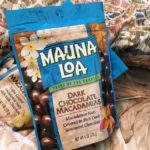When is recyclable not recyclable?
A bill coming up aims to redefine recyclable in the context of the upcoming July 1 ban on polystyrene food containers. The restrictions on polystyrene, popularly called “Styrofoam,” are unchanged under the new bill, but the 2017 bill as written had some unintended consequences, county officials said.
Bill 74, sponsored by Kohala Councilman Tim Richards, will be heard at 2 p.m. Monday in the Committee on Agriculture, Water, Energy and Environmental Management, a committee he chairs.
The meeting will be held in council chambers in Hilo, but the public can also testify by videoconference from the West Hawaii Civic Center, Waimea and Pahoa council offices, old Kohala courthouse and the Naalehu state office building.
The 2017 law allowed both compostable or recyclable plastic containers as substitutes to polystyrene. But the county Dec. 1 stopped accepting plastic “clamshell” containers for recycling because there is no longer a market to recycle them.
Bill 74 removes the requirement that alternative containers to polystyrene must be recyclable under the county’s recycling program. Instead, the new law will simply require them to be recyclable.
“Doing the right thing suddenly would be wrong now because of the way the rules changed,” Richards said Wednesday. “They are recyclable. We’re just not recycling them right now.”
Richards said Mayor Harry Kim had asked him to meet with a group of business owners who came to the mayor to describe problems they were having complying with the new law. Among those were Big Island Candy Co., Meadow Gold Dairies and Mauna Loa Macadamia Nut Farm.
This led to another proposed change to the 2017 law. A provision will exempt “pre-packaged or pre-sealed items such as breads, cookies, milk, juice, snacks, candy, nuts, fruits, vegetables, or other items typically sold in a grocery store or a food manufacturer’ s retail location,” as well as eggs.
Council Chairman Aaron Chung said the original bill was “flawed.” Items shipped into the state are covered by interstate commerce laws and thus are not easy to regulate. Food packaged outside the county is exempt from the ban.
“It’s an anti-Big Island measure,” Chung said. “As long as something was packaged on Oahu or the mainland or anywhere else in the world, it was OK, but if packaged on Hawaii Island, it’s not OK.”
Chung, who had voted no on the 2017 bill, had been working on his own bill, but planned to introduce it in July after the county budget was finished. Richards decided to go ahead with his earlier.
Environmental Management Director Bill Kucharski, who supports Bill 74, emphasized that the new bill won’t delay or change the polystyrene ban in the current ordinance. It affects only the alternatives.
“There should be a fixed target, not a moving target,” Kucharski said. “It’s allowing the regulated community, which is the food service people, to comply with the law by allowing suitable alternatives.”
The department is encouraging restaurateurs, food vendors and those dispensing food in single-use containers to adopt certified compostable products. Compostable disposable food service ware includes bio-plastics and fiber-based products.
The county rule will require the use of compostables certified by the Biodegradable Product Institute, which a carry a BPI logo. The products are compostable in an industrial composting facility, such as one Hawaii County has planned to open by July 1, 2020.
The proposed changes have unsettled some members of the public who expressed their concerns at a rule-making hearing earlier this month.
“The word on the street is that the ordinance has been compromised,” said Catherine Spina.
She and a half-dozen other testifiers pushed for the law to be implemented as it stands. Richards thinks most of the concern stems from misinformation that’s spread about what the bill will do.



